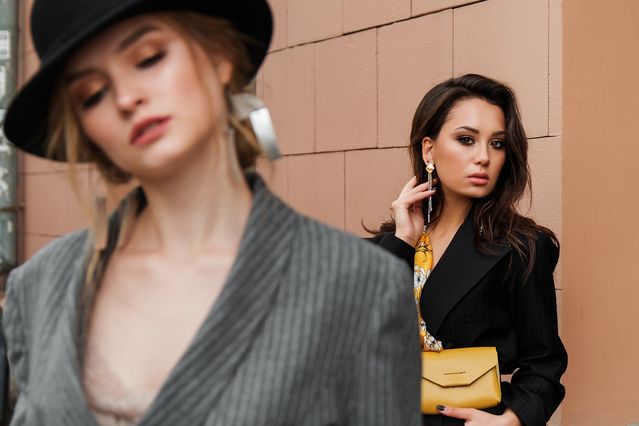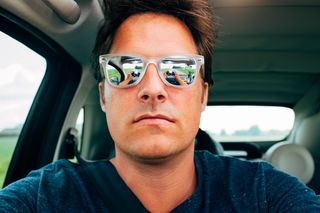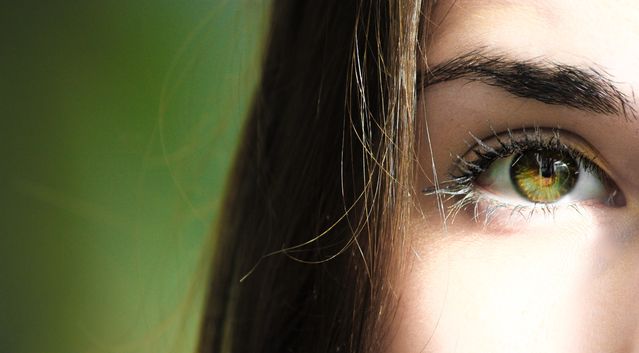Narcissism
10 Surprising Ways to Spot a Narcissist on Social Media
Find out how to spot narcissists before you fall for them.
Posted June 16, 2019 Reviewed by Devon Frye
On TV, they are easy to spot. Characters like Dr. House captivate the audience with their arrogance, charisma, brilliance—and narcissism. While our attraction to narcissism may be harmless in a fictional setting, it has negative consequences in real life. By the time that we discover a narcissist’s façade, it is likely too late. We may have already started dating (and perhaps even loving) the narcissist.
Luckily, social media makes spotting a narcissist much easier. Below I countdown 10 surprising ways to spot a narcissist on social media. (As a disclaimer, this list should not be used to diagnose narcissism. All of the below features are found to be correlated with narcissism, but having one or even many of these features does not mean that a person is necessarily a narcissist.)
10. Being dressed to impress.
Researchers have found that narcissists can be detected through their well-groomed appearance and their penchant for flashy and expensive clothing. The next time you spot someone who always looks like they just stepped out of a salon or is always carrying around the latest designer purse—beware!

9. Looking like a snack.
You may think that the flashy clothing doesn’t work on you, but it probably does. In one study, college students came into the lab to have two photos taken of them. For one of the photos, they posed as-is, in their natural “adorned” state. For the second photo, they were asked to change into a t-shirt and sweatpants, to remove makeup and accessories, and to tie back their hair. Men even had to shave off their beards! The researchers found that narcissists were more attractive than non-narcissists in their adorned state, but not in their plainer, unadorned state. Narcissists know what they're doing when they doll themselves up!

8. Posting selfies (men only).
Most people think that anyone who posts a lot of selfies is a narcissist. The reality is more complex. Among 1,296 men and women, it was found that selfie-posting predicted narcissism among men, but not women. Why? Researchers posit that selfie-posting might be normalized among women. In other words, women, but not men, are pretty much expected in our society to post selfies.
7. An attention-grabbing profile page.
Narcissists often strive to be the center of attention, and this tendency easily extends to social media. In one set of studies, researchers harvested data from Facebook profile pages, finding that narcissists used an array of techniques to draw attention to their profile pages. Those who used fewer first person singular pronouns (e.g., “I”, “me”) to describe themselves instead used sexier images as their profile picture, or used profanity or aggressive words (e.g., hate, kill) in their self-descriptions.
6. Using sexual language.
Narcissists are known for having a short-term mating strategy—and in particular, for engaging in a "game-playing" love style in which partners are used as pawns. Researchers recorded college students going about in their everyday lives and found that narcissists are not only more extraverted and less agreeable, but that they also use more sexual language (e.g., naked and other words that need to be censored). Take it as a potential warning sign when someone seems a little bit too obsessed with sex—they may be trying to lure you in as their next conquest.
5. Frequent status updates.
Narcissists seem to think that others are really interested in what they’re doing. A study looked at the relationship between narcissism and Facebook use among teenagers, finding that narcissistic teenagers updated their status more frequently. Contrary to expectations, however, narcissism was not related to the number of Facebook friends.

4. Status updates about achievements, diet, and exercise.
It might not just be the number of status updates that matters, but the type as well. Researchers looked at how different personality traits were related to the content of Facebook status updates, finding that narcissists were more likely to share statuses about achievements and “diet and exercise routines.” Researchers suggest that such updates help to bolster one’s status and draw attention to one’s carefully maintained looks.
3. Fewer likes and comments from friends.
Surprisingly, Facebook friends may not be so taken by a narcissist's status updates. One study found that Facebook friends may actually “punish” narcissists by ignoring their posts! Narcissists were found to receive fewer likes and comments on their posts than non-narcissists.
2. Tweeting (among Millennials).
Most research on narcissism and social media has been conducted on Facebook. One study, however, found that narcissistic college students actually prefer Tweeting to Facebook updates (although among “older” narcissistic adults, Facebook updates were preferred over Tweeting). Among millennials, Tweeting, but not posting on Facebook, predicted narcissism.
Findings point at generational differences in how narcissists use social media. Researchers believe that for millennials, who often grew up with social media, using Facebook has become so natural that status updates require no special motive.
1. Distinct eyebrows.
People say that "eyes are the window to the soul," but in the case of narcissists, it may be the eyebrows that matter. Researchers examined a variety of facial features (e.g., upper half of face, lower half of face, eyes only, brows only) in an effort to pinpoint how people manage to detect narcissism from faces.
Surprisingly, they found that eyebrows are the key to accurately detecting narcissism. Apparently, narcissists have “distinct” eyebrows that are “thicker and denser” than those of their non-narcissistic peers. According to the researchers, narcissists may use their eyebrows to stand out and to look more attractive. The researchers also posit that “narcissists may… naturally have more distinctive brows.” Given that thick brows are in fashion right now (Look up “Instagram Brows” or “power brows”), the use of thick brows as status symbols seems more likely.





